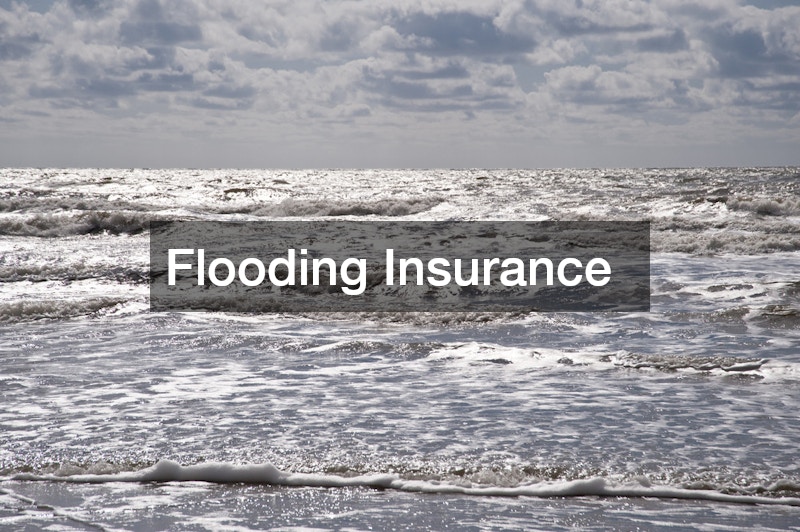
Introduction
In today’s rapidly evolving business landscape, understanding how to sell commercial insurance has become pivotal for professionals in the insurance industry. Commercial insurance safeguards businesses from potential financial losses due to unforeseen events such as accidents, property damage, and liability claims. This comprehensive guide aims to shed light on the various facets of commercial insurance, including the types of claims commonly filed, ways to protect specific industries, and how businesses can leverage discounts and additional policies to enhance their coverage.
The landscape of commercial insurance is vast and multifaceted. With a plethora of options available, it can be challenging for business owners to navigate their way through the complexities of insurance claims, auto insurance agencies, contractor insurance, and more. Whether you are a custom home builder needing liability protection or a demolition company looking for affordable insurance options, understanding the right coverage can save considerable money in the long run and secure peace of mind.
Additionally, new and emerging industries such as solar electric businesses are starting to discover the importance of tailored insurance plans that cater to their unique operational risks. As we proceed through this guide, we will cover the most popular claims filed and delve into effective strategies on how to sell commercial insurance tailored specifically for diverse sectors. The aim is to equip both insurance agents and business owners with the knowledge necessary to make informed decisions regarding commercial insurance options.
Popular Claims Companies File

A myriad of insurance claims can be filed by companies, with some of the most common ones arising from liability issues or property damage. Businesses often find themselves in situations that demand swift and detailed claims processes, whether it be for workplace injuries or damage to a company vehicle. Understanding how to sell commercial insurance requires a comprehensive grasp of these common claims to illustrate to clients the importance of adequate coverage.
Insurance claims related to general liability form a significant portion of the claims landscape. This category encompasses occurrences such as slips, trips, and falls that happen on business premises—a common scenario that can have severe financial implications. Moreover, business owners need to be aware of how these claims process can impact their insurance premiums, and thus, how to advise them accurately, ensuring they are adequately prepared for any eventualities.
Perhaps one of the most crucial aspects of handling insurance claims is understanding the intricacies involved in filing them properly. Incomplete claims can lead to delays or even rejections, which subsequently translates to financial losses for businesses waiting for resolution. Therefore, thorough training in the claims process is an indispensable tool for anyone serious about how to sell commercial insurance effectively.
Company Vehicles
Company vehicles are essential assets for many businesses, particularly those in the construction sector or service industries. For insurance agents, understanding auto insurance agencies and the specific requirements pertaining to commercial vehicle insurance is crucial for guiding clients on the proper coverage. Different vehicles may require different levels of coverage, depending on their value and use, which is a critical point for potential clients to understand.
Using vehicles as a primary means of conducting operations poses unique risks, and those significant risks are often mitigated by appropriate auto insurance policies. From accidents involving work vehicles to potential theft or vandalism, the array of situations that can lead to insurance claims necessitates comprehensive discussions between agents and their clients. Keeping clients informed about the varying premiums and coverages offered by different auto insurance agencies is an important part of how to sell commercial insurance effectively.
To provide dependable service and protect company assets, every business operating vehicles should be well-versed in both the requirements and the potential claims they may encounter. Additionally, strategies for reducing insurance costs for company vehicles, such as bundle packages or safe driving discounts, can significantly affect a business’s bottom line. By emphasizing these factors, insurance agents can build trust while demonstrating the tangible benefits of proper coverage.
How to Protect Contractors
For contractors, the importance of contractor insurance cannot be overstated. This sector faces unique risks, from potential workplace accidents to disputes over completed work, and having the right insurance policy can mean the difference between business continuity and financial ruin. Insurance that encompasses coverage for liability, equipment, and workers’ compensation should be highlighted when considering what policies will best protect contractors.
The ability to inform clients about tailored contractor insurance plans is an integral part of how to sell commercial insurance. Construction projects, whether they involve home renovations or large-scale builds, introduce variable risks that are specific to the work being performed. As such, insurance agents must communicate the necessity of custom-tailoring insurance plans to align with the specific services a contractor offers to ensure comprehensive protection.
Moreover, it’s essential to discuss claims examples pertinent to contractors, such as those related to worker injuries on-site or property damage. By showcasing how other contractors have benefited from comprehensive insurance plans, agents can solidify the need for such coverage in the minds of potential clients. Building knowledge around contractor insurance is vital for ensuring contractors feel supported and adequately protected as they navigate their projects daily.
Types of Claims

Roofing insurance claims are a specific subset of the claims spectrum that can arise from both accidental damage and storm-related incidents. Roofers and contractors working in this industry must be particularly proactive in addressing potential risks associated with their work. Therefore, understanding the claims process and ensuring that clients have the right coverage can significantly enhance how agents sell insurance to these professionals.
When handling claims related to roofing, insurance agents should be familiar with the additional documentation that is often needed to support a claim successfully. This could include photographs of damage, estimates for repair, and documents detailing previous repairs. Educating contractors on this process not only builds a rapport but also demonstrates the comprehensive nature of the services provided when selling commercial insurance.
Furthermore, discussing actual claim statistics and outcomes can be valuable in illustrating the importance of adequate roofing insurance coverage. Clients are often reassured by detailed accounts of how others in their field have successfully navigated similar claims, creating a trustworthy relationship between agent and client. Ultimately, agents must put forth a proactive approach toward roofing insurance claims to bolster clients’ confidence in their coverage.
Tailoring to Company Sizes
When it comes to affordable insurance options, understanding how to sell commercial insurance tailored to the size and needs of a business is crucial. Larger companies often have different exposure to risk compared to smaller firms, which necessitates tailored insurance policies. For small businesses, finding affordable insurance solutions can often mean the difference between experiencing financial hardships or maintaining operational stability.
Insurance agents need to evaluate the specific requirements of each business and adjust coverages accordingly. This includes considering operational nuances, employee numbers, revenue, and even geographic location, which can all significantly impact insurance rates. By emphasizing the importance of individual assessments, agents stand a much greater chance of converting leads into satisfied clients.
Providing options for bundling policies can often lead to cost-effective solutions for clients seeking affordable insurance. By combining different types of coverage, companies can not only simplify their insurance needs but also reduce overall expenses. As agents describe these benefits, they create an appealing narrative around how tailored insurance plans can save money while providing robust protection to diverse types of businesses.
Construction Industry
The construction industry is an area rife with unique insurance needs, particularly for custom home builders and contractors. Each construction project holds specific risks like equipment damage, project delays, or worker injuries, making it imperative to have tailored coverage in place. Educating clients about the broader implications of inadequate coverage in this industry will assist agents in their mission of how to sell commercial insurance effectively.
Potential claims in the construction sector can be costly and time-consuming, and many custom home builders may not fully understand what their insurance covers until they face a claim. Agents can build strong client relationships by providing clarity on this aspect, and explaining the important elements of construction insurance, including builders’ risk policies and general liability. This awareness helps clients take ownership of their coverage decisions while fostering trust with their agents.
Additionally, discussing the trends in the construction industry, such as safety protocols and regulations, can guide insurance discussions to further emphasize the need for comprehensive coverage. As different state regulations may affect insurance requirements, keeping up-to-date with industry changes is vital for agents offering coverage to this sector. By positioning themselves as knowledgeable advisors, agents can more effectively convey the importance of investing in proper insurance for custom home builders.
Insurance Discounts

With the increasing reliance on renewable energy, solar electric businesses have emerged as a significant market segment in the insurance landscape. As with any business, these companies need to be informed about the various insurance discounts available to them, which can significantly lower their costs. By promoting energy-efficient practices and adherence to safety regulations, solar electric businesses can qualify for discounts that further incentivize good practices.
Apart from general coverage, agents must illustrate how additional policies, such as equipment breakdown or professional liability insurance, can save solar businesses money in the long run. Clients may often overlook these policies; however, educating them about the potential savings and risk mitigation can turn these additional coverages into sought-after solutions. This adds value to the insurance service being offered and can improve client satisfaction significantly.
Insurance Additions
Insurance additions, such as coverage for tools and equipment in a 24 hour towing service, must be emphasized to clients looking for comprehensive protection. In any service-based business, the possibility of equipment failure or damage carries significant risk. By explaining the value of adding specific coverage types to their primary policies, agents can ensure that clients are well protected, no matter the situation.
Insurance agents should also highlight the importance of reviewing and updating policies regularly, especially as businesses grow or expand their service offerings. For instance, a 24 hour towing service may require higher levels of liability coverage as they scale up their operations. Thus, fostering an ongoing relationship with clients to evaluate coverage needs is key to ensuring their insurance remains relevant, comprehensive, and effective.
Employee Safety
Employee safety is paramount, especially for high-risk industries such as demolition companies. Agents should explain to potential clients the insurance implications of maintaining a safe work environment and how compliance with regulations can affect their premiums. Creating a culture of safety not only reduces the likelihood of claims but also enhances productivity and employee morale.
Workers’ compensation insurance plays a crucial role in protecting employees while guarding the interests of demolition companies. Providing proactive safety training reduces accidents, and as a result, can lower premiums over time. Agents can articulate these concepts effectively to companies operating within high-risk sectors, reinforcing the importance of investing in employee safety measures.
Flooding Insurance

Flooding is one of the most destructive natural disasters, and businesses facing the threat of a flooded basement can face devastating financial repercussions. Educating clients about the importance of having specialized flooding insurance will aid in protecting their assets against extreme weather events. By providing data-driven insights on the frequency and impact of floods, agents can strengthen their position when discussing the suitability of flood insurance.
When discussing flooding insurance, agents can explore policies that cover not only the structure of a business but also its contents, as these too can sustain significant water damage. Clients may not realize that standard commercial property insurance often excludes flooding unless specifically purchased. By ensuring clients understand the specifics of flood coverage requirements, agents can promote the importance of taking preventive measures against loss.
Conclusion
In summary, navigating the complexities of commercial insurance requires an in-depth understanding of various industry needs and claim processes. From the specifics of contractor insurance to the implications of insufficient coverage for company vehicles, a thorough grasp of the landscape will greatly enhance the ability to sell insurance effectively. It is essential for agents to be proactive about understanding client needs, coupled with a strong knowledge of potential risks to provide tailored solutions.
Moreover, there are numerous angles to leverage while discussing coverage with clients, such as insurance discounts available for solar electric businesses or the importance of employee safety programs in reducing premiums for demolition companies. By creating value through personalized education on unique risks and coverage options, agents can foster meaningful relationships with clients. Ultimately, the aim is to instill a sense of security in business owners regarding their insurance needs while expertly addressing how to sell commercial insurance effectively.

